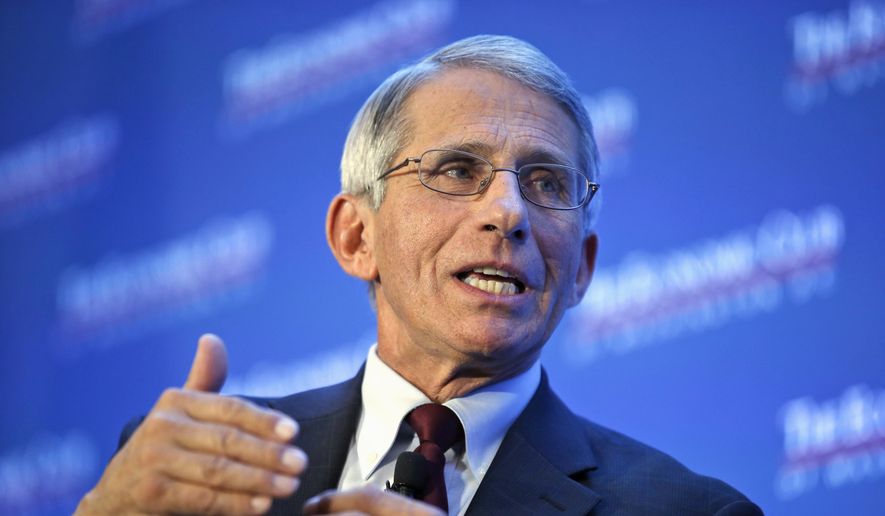House lawmakers signaled Wednesday that President Trump’s proposed budget cuts to the National Institutes of Health will never see the light of day, saying the loss of funds would derail life-saving work and induce budget-busting medical costs down the road.
Mr. Trump’s full 2018 budget will be submitted next week, but he already telegraphed his desire to trim NIH by 22 percent in order to fund other priorities.
Congress, however, dealt him a first blow in the 2017 spending bill passed earlier this month, boosting NIH’s budget by $2 billion.
Now lawmakers are looking for yet another increase in 2018, and said Mr. Trump’s call for cuts “disappointed” them.
“I’m concerned that the reductions in the request would stall progress that our recent investments were intended to achieve,” said Rep. Tom Cole, Oklahoma Republican and chairman of the Appropriations Committee’s panel on health.
He said the government should try to stamp out diseases and epidemics on the front end so taxpayers don’t have to spend more money on treatment or response efforts.
“Not only would human life be incomparably better, but, honestly, it would be a huge boon to the Treasury and a pretty strained budget as well,” Mr. Cole said.
NIH Director Francis Collins agreed, testifying that Alzheimer’s disease and dementia care will cost the government $259 billion this year in medical costs and lost benefits to the economy from those who must care for sufferers instead of working — a number that could reach a whopping $1.1 trillion by 2050.
“It will absolutely break our budget if we don’t come up with something,” Dr. Collins said.
Dr. Collins offered a slideshow featuring NIH personnel, the research they are doing and who might be helped by their breakthroughs, from mapping proteins in cystic fibrosis patients to accurately matching sickle cell patients with marrow donors.
NIH also testified it needs adequate funding to combat the opioid epidemic with new overdose-reversing drugs and therapeutic alternatives for chronic pain, as Congress authorizes hundreds of billions in grant funding just to catch up with the problem.
“This is a classic pay-me-now or pay-me-later proposition,” Rep. Steve Womack, Arkansas Republican, said.
Health and Human Services Secretary Thomas Price has justified the proposed fiscal 2018 cuts, in part, by saying payments to research universities for overhead — or “indirect costs” — could be redirected to critical biomedical research.
Rep. Andy Harris, Maryland Republican, said he was concerned that taxpayers were paying a higher share of indirect costs to universities than private-sector groups and nonprofits that partner with the schools.
“Why is this reasonable? Why should we pay more than these other nonprofits? My taxpayers?” Mr. Harris said.
Dr. Collins said the rates were set by HHS and White House budget-minders rather than NIH itself, and that universities might be asking for more money due to reporting requirements and “bureaucracies we put down on them.”
“This might be a really good moment to revisit a lot of the regulations,” Dr. Collins testified.
Democrats said they want to see NIH budget increases, and chafed at a White House plan to shutter the Fogarty International Center, which trains U.S. and foreign investigators to combat global health threats.
The NIH said it would be harder to stop diseases like Ebola or Zika before they reach American shores without the training center.
“It’s really part of our army of defense against diseases that will ultimately have an impact right here in our own country,” Dr. Anthony Fauci, NIH’s director for infectious diseases, testified. “Even though they are foreigners, they are helping us to be protected from disease.”
• Tom Howell Jr. can be reached at thowell@washingtontimes.com.




Please read our comment policy before commenting.